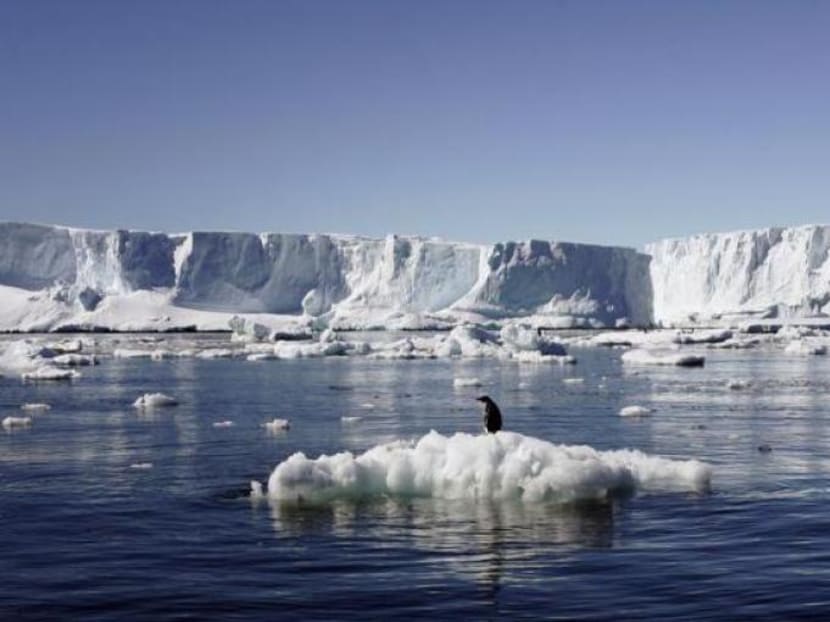The heat is on: Earth is getting ‘very, very close’ to crossing tipping point, scientist warns
SINGAPORE — Just days after an Australian think tank issued a gloomy report warning that climate change will end human civilisation by 2050, another scientist has made a similarly dire forecast.

Dr Will Steffen, emeritus professor at the Australian National University, said that a rise in temperature of just 4°C is all it takes to get from an Ice Age to a hazardous level of global warming.
SINGAPORE — Just days after an Australian think tank issued a gloomy report warning that climate change will end human civilisation by 2050, another scientist has made a similarly dire forecast.
Speaking at the Ecosperity conference in Singapore on Thursday (June 6), Dr Will Steffen, emeritus professor at the Australian National University, said that Earth is “getting very, very close to crossing tipping points we won't be able to get back from”.
He added: “We scientists are getting really concerned.”
Dr Steffen, who is also a senior fellow at the Stockholm Resilience Centre, noted that Earth’s average temperature has risen by a little over 1°C since 1880.
This might not seem like much, but a rise in temperature of just 4°C is all it takes to get from an Ice Age to a hazardous level of global warming, he said.
And the increasing rate at which temperatures are rising is the reason why there are more problems in the biosphere, he added.
“This is why we're seeing that polar bear struggling to get out of water. This is why in Australia, we see flying foxes drop dead out of the sky (when) they try to fly out of extreme heat,” he said.
“And it's happening all over the planet, because the natural world cannot deal with that rapid change.”
He warned that the rate of species extinction is accelerating and that we are “well on our way” towards the sixth mass extinction event in Earth’s history. It is also the first one driven by a biological species — human beings.
Humanity is also eroding the very foundations of our economies, livelihoods, food, security, health, and quality of life through our “predatory economic system” that sees us going through resources at far too great a pace, Dr Steffen said.
“Humans are the only species on planet Earth that undermines and degrades its own life support system. No other species,” he said.
“We need to get rid of this idea of ‘resources, resources, resources’. We need to be regenerative by design and that is what the economic system of the 21st century must look like.”
CHANGE SHOULD HAVE STARTED EARLIER
Carbon dioxide levels have been rising over the years at an increasingly faster pace, Dr Steffen said.
Yet, there has not been any noticeable change in the way resources are consumed worldwide, he added.
“Something has to change because we have no more time. I would say yesterday is when we should have been acting. It is getting that dire.”
Dr Steffen also brought up the planetary boundaries, a concept involving nine environmental boundaries which include climate change, biodiversity loss, and ocean acidification.
The idea behind the concept is that human development has an impact on these boundaries. Push past them and the Earth’s system will no longer be able to support human civilisation.
He said that the planetary boundaries can serve as a guidance system to lead humanity to more sustainable development.
“We are very close to hitting that fork in the road and we’ve to make sure we steer Earth on the right path,” he said.
“The heat is on, so to speak, and we've to start turning words into action. And that has to happen now, not in the distant future.”











